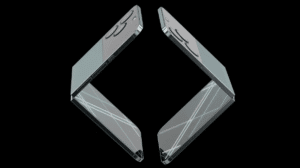Apple recently agreed to pay $95 million to settle a lawsuit that alleged the “unlawful and intentional recording” of Siri interactions. This settlement, which has made headlines, has also sparked a wave of conspiracy theories suggesting that Siri is eavesdropping on users for targeted advertising. However, Apple has firmly rejected these claims, emphasizing that they are unfounded.

The origins of the lawsuit date back to 2019 when a report by The Guardian revealed that Apple had hired contractors to “grade” Siri interactions. A whistleblower claimed that these contractors regularly overheard private conversations as part of their job providing quality control for Siri. Apple swiftly responded to the allegations, stating that fewer than 1% of daily Siri activations were used for grading, and those interactions were typically only a few seconds long. Furthermore, Apple assured the public that these recordings were not linked to users’ Apple IDs and were governed by strict confidentiality agreements.
In response to the controversy, Apple made several updates to Siri’s privacy policies. Notably, the company stopped retaining recordings of Siri interactions by default. Users were given the option to opt-in for enhancing Siri’s performance by sharing audio samples of their requests. Apple also made it clear that only Apple employees would have access to these samples, and third-party contractors would be excluded from this process. Any recordings resulting from accidental activations of Siri would be promptly deleted.
Fast forward to 2025, Apple settled the lawsuit for $95 million, asserting that the decision was made to move past concerns related to third-party grading that were addressed back in 2019. Apple stressed that Siri data has “never been used to create marketing profiles” and has “never been sold to anyone for any purpose.” The company emphasized that the use of Siri data is strictly for improving the service and advancing privacy technologies.
Siri has been engineered to protect user privacy from the beginning. Siri data has never been used to build marketing profiles and it has never been sold to anyone for any purpose. Apple settled this case to avoid additional litigation so we can move forward from concerns about third-party grading that we already addressed in 2019. We use Siri data to improve Siri, and we are constantly developing technologies to make Siri even more private.

Despite Apple’s efforts to clarify its stance on privacy, the settlement has fueled a fresh wave of conspiracy theories. Some have suggested that Apple is secretly using Siri to listen to users’ conversations and target them with personalized advertisements. Apple, however, has repeatedly denied these allegations, stating that there is no evidence to support such claims. Siri data is anonymized, tied to a random identifier rather than personal information, and after six months, the request history is unlinked from this identifier.
Apple has also implemented privacy features that allow users to review and delete their Siri transcripts at any time through the “Siri & Dictation History” section in the Settings app. Additionally, some Siri requests are processed entirely on-device, such as when you ask Siri to read your unread messages, ensuring that the content does not leave your device.
For its Apple Intelligence features, Apple highlights its use of Private Cloud Compute, which is built on Apple Silicon chips and available to third-party researchers to ensure robust privacy protections. This infrastructure is designed to uphold the highest standards of user privacy, further dispelling concerns about unauthorized access to personal data.
As part of the settlement, Apple has denied any wrongdoing and continues to assert that the plaintiffs’ claims are not suitable for class action status. Nevertheless, the settlement provides users who had Siri interactions between September 17, 2014, and December 31, 2024, the opportunity to claim up to $20 in compensation.
(via 9to5Mac)



